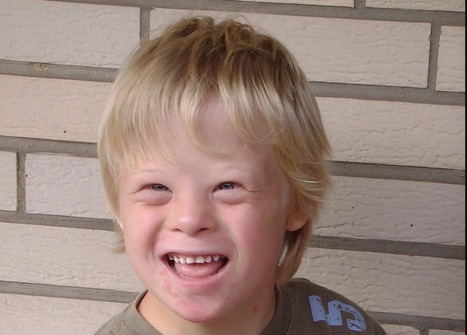People with Down syndrome were more likely than those without the disorder to be hospitalized and die from COVID-19-related complications, according to a new report published in Annals of Internal Medicine. Julia Hippisley-Cox, MD, professor of clinical epidemiology and general practice in the Nuffield Department of Primary Care Health Sciences at the University of Oxford, and colleagues estimated that Down syndrome was associated with a four-fold increased risk for COVID-19-related hospitalization and 10-fold increased risk for COVID-19-related mortality. “Although the results are from an observational study and we haven't nailed the causality or exact reasons for this elevated risk, we feel that clinicians and other health care workers should be aware of potential risks,” Hippisley-Cox told Healio Primary Care. “These findings could be used by health care workers within the context of other factors to have a more nuanced risk assessment for their patients.” Down syndrome is a common genetic disorder that is linked to immune dysfunction, congenital heart disease and pulmonary issues, according to the researchers. However, it is not currently on the CDC’s list of populations at “increased risk” for COVID-19 complications.
To determine whether Down syndrome is a risk factor for poor COVID-19 outcomes, Hippisley-Cos and colleagues analyzed individual-level data from QResearch, a primary care database, on adults in the United Kingdom. The data were collected from January 24 to June 30. Of the 8.26 million adults included in the analysis, 4,053 had Down syndrome. Among them, 68 died during the study period. Nearly 40% of the deaths among adults with Down syndrome were attributed to COVID-19 compared with 20.3% of deaths among people without Down syndrome. In an analysis adjusted for age, sex, ethnicity, BMI, dementia, care home residency, congenital heart disease and other comorbidities and treatments, the researchers reported that people with Down syndrome and COVID-19 were about four times more likely to be hospitalized (adjusted HR [aHR] = 4.94; 95% CI, 3.63-6.73) and 10 times more likely to die of COVID-19-related complications (aHR = 10.39; 95% CI, 7.08-15.23) than those with COVID-19 who did not have Down syndrome. Hippisley-Cox and colleagues noted that the findings “motivate further investigation.” “We are unaware of the effects of Down syndrome on COVID-19 outcomes being reported elsewhere yet during this pandemic,” they concluded. “Novel evidence that specific conditions may confer elevated risk should be used by public health organizations, policymakers, and health care workers to strategically protect vulnerable individuals.”
Original Study in Annals Int. Medicine (Oct. 21, 2020):



 Your new post is loading...
Your new post is loading...








